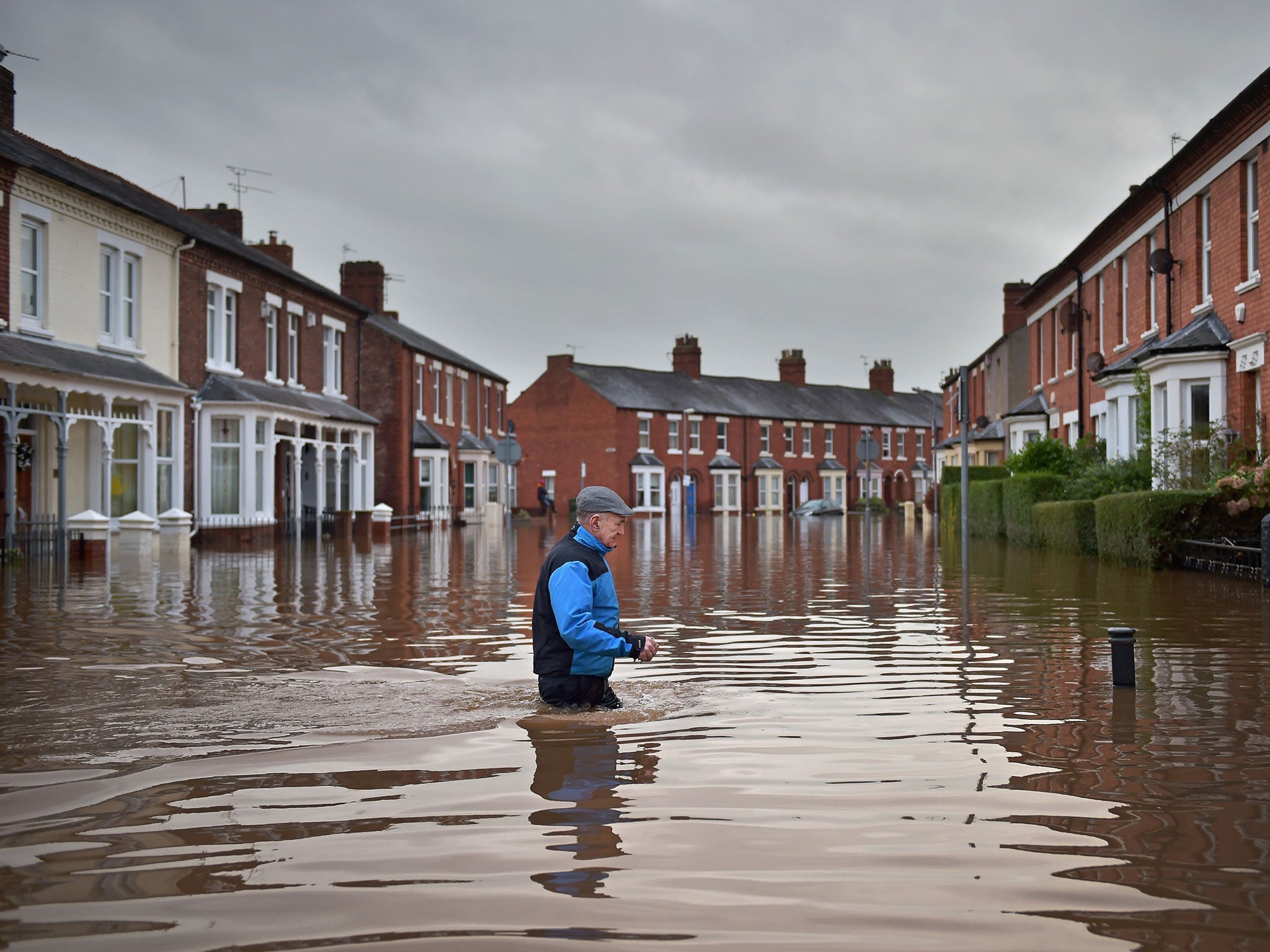Thanks for the comedy routine, Amber Rudd – it’s a shame your climate policies are so toxic
The Government’s scattergun and short-sighted efforts on the environment are a national biohazard risk. The pain of Storm Desmond is destined to be felt again

Your support helps us to tell the story
From reproductive rights to climate change to Big Tech, The Independent is on the ground when the story is developing. Whether it's investigating the financials of Elon Musk's pro-Trump PAC or producing our latest documentary, 'The A Word', which shines a light on the American women fighting for reproductive rights, we know how important it is to parse out the facts from the messaging.
At such a critical moment in US history, we need reporters on the ground. Your donation allows us to keep sending journalists to speak to both sides of the story.
The Independent is trusted by Americans across the entire political spectrum. And unlike many other quality news outlets, we choose not to lock Americans out of our reporting and analysis with paywalls. We believe quality journalism should be available to everyone, paid for by those who can afford it.
Your support makes all the difference.The Government’s energy and climate policies have long been a toxic brand. Now, though, they’re a straight up biohazard.
There are moments of light relief. Like when the Energy Secretary, Amber Rudd, said yesterday that it was completely wrong to characterise the Conservatives “as having any negativity about renewables”. That was funny. Or when minister Andrea Leadsom asked whether climate change was real. Or pretty much anything Owen Paterson has said.
Comedic value aside, the government’s short-sighted and scattergun attitude should be approached with extreme scepticism - and preferably a biohazard suit.
This month has served up stark warnings as to why. While the Prime Minister was posturing in Paris for the climate talks, his Energy Secretary ploughed yet more subsidies (to the scale of £175 million) into fossil fuels in the highly polluting form of diesel generation. Its smoke and mirror policymaking must be laid bare, and that’s what I intend to do in today’s Opposition Day Debate on climate and flooding.
This week we were reminded why the Conservative’s approach to air pollution should come with a health warning. At the Paris climate talks, Maria Neira, director of the World Health Organisation’s public health division, put it bluntly: “The real cost of fossil fuels is seen in your lungs”.
The air we breathe isn’t just toxic for our planet, it’s choking our communities and killing us too – six million of us worldwide. Imagine the outcry if 53,000 people in Britain were dying in road traffic accidents every year. Something would be done. But that’s the number of people dying from polluted air in the UK each year. And last month David Cameron did do something…he set up a committee to look at the problem.
But yesterday it emerged that his government, despite the growing national body count, doesn’t see “a rationale” for stricter emission limits – and is (still) pushing to weaken European rules. This referred specifically to nitrogen oxides (NOx), largely created by diesel cars, lorries and buses. It limits lung capacity and growth and causes almost 30,000 early deaths in Britain every year.
Then there’s the flooding. In his Autumn Statement, the Chancellor re-pledged £2.3 billion, over six years, saying it would increase flood protection for 300,000 homes. I tabled a Parliamentary Question to find out who the 300,000 were.
The majority, it turns out, are those already at low risk, and they move to become at ‘very low’ risk. So when allocating this money, government advisers were asking not, how can it best protect communities, but how can we create the best headline? It is callous and calculated political trickery - and the results are etched across our worst hit communities today.
Courtesy of former Environment Secretary Mr Paterson, the government is prioritising politics and the protection of industry above the security of ordinary people. Homes continue to be built in areas of high and medium flood risk. But people are being left in the dark about the risks they could face. While the last Labour government imposed a legal obligation on infrastructure providers to disclose such risks and report on resilience measures, Mr Patterson made that obligation voluntary.
In October, the Committee on Climate Change warned the government it had to address the soaring number of homes in high flood risk zones. The government replied that didn’t feel a strategy would be “appropriate at this time”. That’s not a line the Prime Minister repeated when - just weeks later - he met with flood victims in Cumbria and Lancashire.
It’s hard to overstate the scale of Britain’s flood crisis – both its human and financial costs. The floods of 2007 were the greatest civil emergency in our peacetime history. More than 5 million people in England and Wales - about one in six of us - are at risk of flooding. And while climate change means that figure will grow, investment in defences has plummeted under the Tories.
Climate change couldn’t get more personal. It links to everything, from the health of our economy and security of our homes to the air in our lungs. No one should be deceived about the risks and remedies. We must continue to stand up for real climate justice, and the transparency and accountability we need from those in power.
Barry Gardiner is Labour MP for Brent North and Shadow Minister for Energy and Climate Change
Join our commenting forum
Join thought-provoking conversations, follow other Independent readers and see their replies
Comments